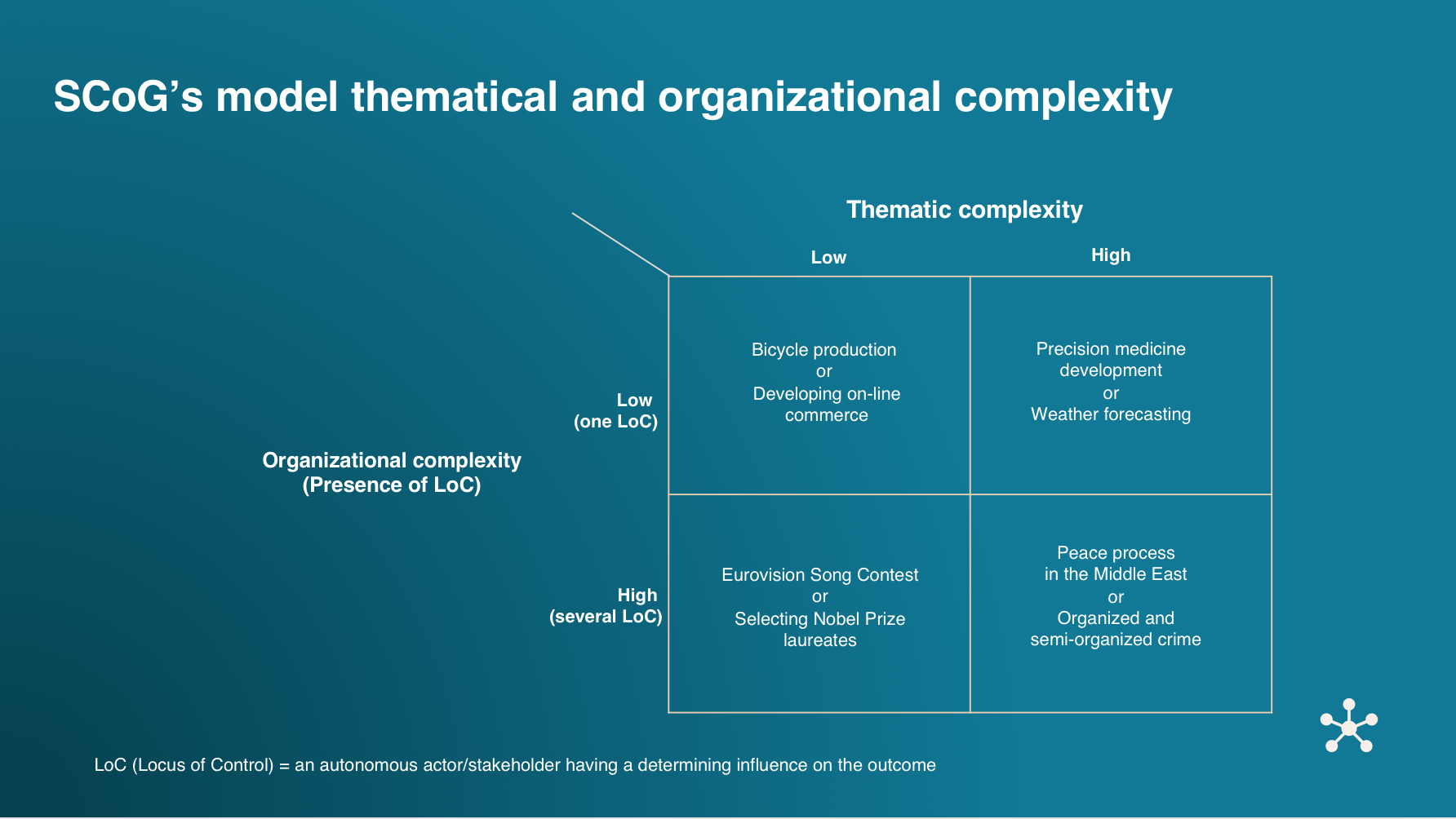
THE FOUNDATIONS OF OUR WORK
THE FIRST PILLAR OF OUR ACTIVITIES
The industrial society was complicated enough.
However, ongoing societal transformation is manifesting in the creation of increasingly complex structures. Unfortunately, with high complexity comes high unpredictability. This, in turn, makes what we call management – one of our most widely used governance models – less and less relevant in its conventional guise.
The good news is that we are already shaping the contours of an alternative approach; one that uses multiple collaborative approaches based on the coordination of individuals and organisations who would otherwise work independently, or in isolation.
In this approach lies new but highly tangible opportunities to mobilise and apply different competencies, resources and skills in order to meet complex challenges.
By working in this way, we can address issues such as climate change, public health, integration, segregation and global poverty.
In fact, this new type of governance model - based on stakeholder coordination through horizontal leadership - is an important prerequisite for fulfilling the UN Agenda 2030.
When we say that we are in the business of societal transformation, we mean this in a literal sense.
Our intention is to help those we work with realise and achieve change in collaboration with other stakeholders. You can say that we live as we learn, growing through our different collaborations.
None of us can meet complex societal challenges we now face on our own. This kind of approach ended with the dawn of the industrial society. Today, constellations must be assembled to varying degrees, temporarily and cross-sectionally, in order to meet different levels of complexity.
THE SECOND PILLAR OF OUR ACTIVITIES
In order to understand different societal issues and establish long-term ways in which to address them, we must examine two different components: thematic complexity and organisational complexity.
Thematic complexity
Thematically complex problems and challenges are characterised by the fact that they strictly lack causal connections. We simply do not know if a certain measure leads to a certain outcome. In instances whereby we can see a connection, we do not know whether this will be repeated – either in the same context or a new one. Thematically complex problems are unpredictable and need to be addressed in a specific way. Unlike simple – and sometimes complicated - problems where there are clear connections and causal conditions, even though they may sometimes be difficult to find, thematic complex problems need to be approached by experimenting. Thematic complex challenges address issues relating to What and Why.
Organisational complexity
Organisationally complex problems and challenges are characterised by the fact that it is not solely one organisation or institution who ’owns’ or is responsible for them. It can also be unclear as to who ‘co-owns’ them.
Here, the concept of Locus of Control (LoC) becomes relevant. For instance, an organisation is classified as having LoC if it can demonstrate that it has control and decisive influence over a process or outcome.
Even if organisations are able to demonstrate effective LoC across different challenges and problems they could have conflicting interests, which may counteract any efforts made to establish an effective solution.
Importantly, interests and priorities do not have to be the same or overlapping in order for different LoC’s to cooperate successfully – but they must not be contradictory.
Organisational complexity addresses issues relating to How and Who.
Many societal problems and challenges are both thematically and organisationally complex. Social exclusion is one such issue. Organised crime, loss of biodiversity and mental illness are other examples.
If organisational complexity is low (one or very few LoC), we can usually use well-known governance models. Conventional management using a project or linear-based approach are some examples.
When the organisational complexity is high, and especially when the issues are also thematically complex, there is a need for new approaches, methods and tools. This is the niche that SCoG’s activities are focussed on.


